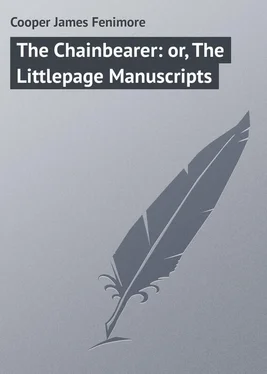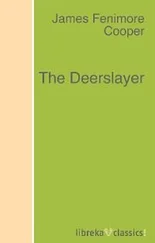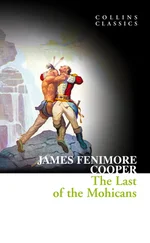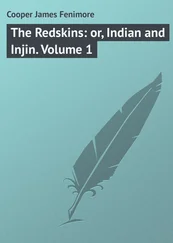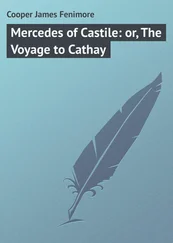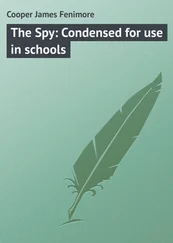James Cooper - The Chainbearer - or, The Littlepage Manuscripts
Здесь есть возможность читать онлайн «James Cooper - The Chainbearer - or, The Littlepage Manuscripts» — ознакомительный отрывок электронной книги совершенно бесплатно, а после прочтения отрывка купить полную версию. В некоторых случаях можно слушать аудио, скачать через торрент в формате fb2 и присутствует краткое содержание. Жанр: foreign_prose, на английском языке. Описание произведения, (предисловие) а так же отзывы посетителей доступны на портале библиотеки ЛибКат.
- Название:The Chainbearer: or, The Littlepage Manuscripts
- Автор:
- Жанр:
- Год:неизвестен
- ISBN:нет данных
- Рейтинг книги:5 / 5. Голосов: 1
-
Избранное:Добавить в избранное
- Отзывы:
-
Ваша оценка:
- 100
- 1
- 2
- 3
- 4
- 5
The Chainbearer: or, The Littlepage Manuscripts: краткое содержание, описание и аннотация
Предлагаем к чтению аннотацию, описание, краткое содержание или предисловие (зависит от того, что написал сам автор книги «The Chainbearer: or, The Littlepage Manuscripts»). Если вы не нашли необходимую информацию о книге — напишите в комментариях, мы постараемся отыскать её.
The Chainbearer: or, The Littlepage Manuscripts — читать онлайн ознакомительный отрывок
Ниже представлен текст книги, разбитый по страницам. Система сохранения места последней прочитанной страницы, позволяет с удобством читать онлайн бесплатно книгу «The Chainbearer: or, The Littlepage Manuscripts», без необходимости каждый раз заново искать на чём Вы остановились. Поставьте закладку, и сможете в любой момент перейти на страницу, на которой закончили чтение.
Интервал:
Закладка:
The place was like any other in the solitude of the forest. There was the usual array of the trunks of stately trees, the leafy canopy, the dark shadows, the long vistas, the brown and broken surface of the earth, and the damp coolness of the boundless woods. A fine spring broke out of a hill-side quite near me, and looking further, with the intention to approach and use its water, the mystery of the blanket was at once explained. I saw the form of the Onondago, motionless as one of the trees which grew around him, leaning on his rifle, and seemingly gazing at some object that lay at his feet. In a minute I was at his side, when I discovered that he was standing over a human skeleton! This was a strange and startling object to meet in the depth of the woods! Man was of so little account, was so seldom seen in the virgin wilds of America, that one naturally felt more shocked at finding such a memorial of his presence in a place like that, than would have been the case had he stumbled on it amid peopled districts. As for the Indian, he gazed at the bones so intently that he either did not hear, or he totally disregarded my approach. I touched him with a finger before he even looked up. Glad of any excuse to avoid explanation of my own conduct, I eagerly seized the occasion offered by a sight so unusual, to speak of other things.
"This has been a violent death, Sureflint," I said; "else the body would not have been left unburied. The man has been killed in some quarrel of the red warriors."
" Was bury," answered the Indian, without manifesting the least surprise at my touch, or at the sound of my voice. "Dere, see grave? 'Arth wash away, and bones come out. Nuttin' else. Know he bury, for help bury, myself."
"Do you, then, know anything of this unhappy man, and of the cause of his death?"
"Sartain; know all 'bout him. Kill in ole French war. Fader here; and Colonel Follock; Jaap, too. Huron kill 'em all; afterward we flog Huron. Yes, dat ole story now!"
"I have heard something of this! This must have been the spot, then, where one Traverse, a surveyor, was set upon by the enemy, and was slain, with his chainbearers and axe-men. My father and his friends did find the bodies and bury them, after a fashion."
"Sartain; just so; poor bury, d'ough, else he nebber come out of groun'. Dese bones of surveyor; know 'em well: hab one leg broke, once. Dere; you see mark."
"Shall we dig a new grave, Susquesus, and bury the remains again?"
"Best not, now, Chainbearer mean do dat. Be here by-'m-bye. Got somet'ing else t'ink of now. You own all land 'bout here, so no need be in hurry."
"I suppose that my father and Colonel Follock do. These men were slain on the estate, while running out its great lots. I think I have heard they had not near finished their work in this quarter of the patent, which was abandoned on account of the troubles of that day."
"Just so; who own mill, here, den?"
"There is no mill near us, Susquesus; can be no mill, as not an acre of the Ridge property has ever been sold or leased."
"May be so – mill d'ough – not far off, needer. Know mill when hear him. Saw talk loud."
"You surely do not hear the saw of a mill now, my friend. I can hear nothing like one."
"No hear, now; dat true. But hear him in night. Ear good in night – hear great way off."
"You are right enough there, Susquesus. And you fancied you heard the stroke of a saw, from this place, during the quiet and heavy air of the past night?"
"Sartain – know well; hear him plain enough. Isn't mile off. Out here; find him dere."
This was still more startling than the discovery of the skeleton. I had a rough, general map of the patent in my pocket; and on examination, I found a mill-stream was laid down on it, quite near the spot where we stood. The appearance of the woods, and the formation of the land, moreover, favored the idea of the proximity of a mill. Pine was plenty, and the hills were beginning to swell into something resembling mountains.
Fasting, and the exercise I had taken, had given me a keen appetite; and in one sense at least, I was not sorry to believe that human habitations were near. Did any persons dwell in that forest, they were squatters, but I did not feel much personal apprehension in encountering such men; especially when my only present object was to ask for food. The erecting of a mill denoted a decided demonstration, it is true, and a little reflection might have told me that its occupants would not be delighted by a sudden visit from the representative of the owners of the soil. On the other hand, however, the huts were long miles away, and neither Sureflint nor I had the smallest article of food about us. Both were hungry, though the Onondago professed indifference to the feeling, an unconcern I could not share with him, owing to habits of greater self-indulgence. Then I had a strong wish to solve this mystery of the mill, in addition to a feverish desire to awaken within me some new excitement, as a counterpoise to that I still keenly felt in behalf of my disappointed love.
Did I not so well understand the character of my companion, and the great accuracy of Indian senses, I might have hesitated about going on what seemed to be a fool's errand. But circumstances, that were then of recent origin, existed to give some countenance to the conjecture of Sureflint, if conjecture his precise knowledge could be called. Originally, New York claimed the Connecticut for a part of its eastern boundary, but large bodies of settlers had crossed that stream coming mainly from the adjacent colony of New Hampshire, and these persons had become formidable by their positions and numbers, some time anterior to the revolution. During that struggle, these hardy mountaineers had manifested a spirit favorable to the colonies, in the main, though every indication of an intention to settle their claims was met by a disposition to declare themselves neutral. In a word, they were sufficiently patriotic, if left to do as they pleased in the matter of their possessions, but not sufficiently so to submit to the regular administration of the law. About the close of the war, the leaders of this self-created colony were more than suspected of coquetting with the English authorities; not that they preferred the government of the crown, or any other control, to their own, but because the times were favorable to playing off their neutrality, in this manner, as a means of securing themselves in the possession of lands to which their titles, in the ordinary way, admitted of a good deal of dispute, to say the least. The difficulty was by no means disposed of by the peace of '83; but the counties that were then equally known by the name of Vermont and that of the Hampshire Grants, were existing, in one sense, as a people apart, not yet acknowledging the power of the confederacy; nor did they come into the Union, under the constitution of 1789, until all around them had done so, and the last spark of opposition to the new system had been extinguished.
It is a principle of moral, as well as of physical nature, that like should produce like. The right ever vindicates itself, in the process of events, and the sins of the fathers are visited upon the children, even to the third and fourth generations, in their melancholy consequences. It was impossible that an example of such a wrong could be successfully exhibited on a large scale, without producing its deluded imitators, on another that was better suited to the rapacity of individual longings. It is probable Vermont has sent out, among us, two squatters, and otherwise lawless intruders on our vacant lands, to one of any other of the adjoining States, counting all in proportion to their whole numbers. I knew that the county of Charlotte, as Washington was then called, was peculiarly exposed to inroads of this nature; and did not feel much surprise at this prospect of meeting with some of the fruits of the seed that had been so profusely scattered along the sides of the Green Mountains. Come what would, however, I was determined to ascertain the facts, as soon as possible, with the double purpose of satisfying both hunger and curiosity. As for the Indian, he was passive, yielding to my decision altogether as a matter of course.
Читать дальшеИнтервал:
Закладка:
Похожие книги на «The Chainbearer: or, The Littlepage Manuscripts»
Представляем Вашему вниманию похожие книги на «The Chainbearer: or, The Littlepage Manuscripts» списком для выбора. Мы отобрали схожую по названию и смыслу литературу в надежде предоставить читателям больше вариантов отыскать новые, интересные, ещё непрочитанные произведения.
Обсуждение, отзывы о книге «The Chainbearer: or, The Littlepage Manuscripts» и просто собственные мнения читателей. Оставьте ваши комментарии, напишите, что Вы думаете о произведении, его смысле или главных героях. Укажите что конкретно понравилось, а что нет, и почему Вы так считаете.
